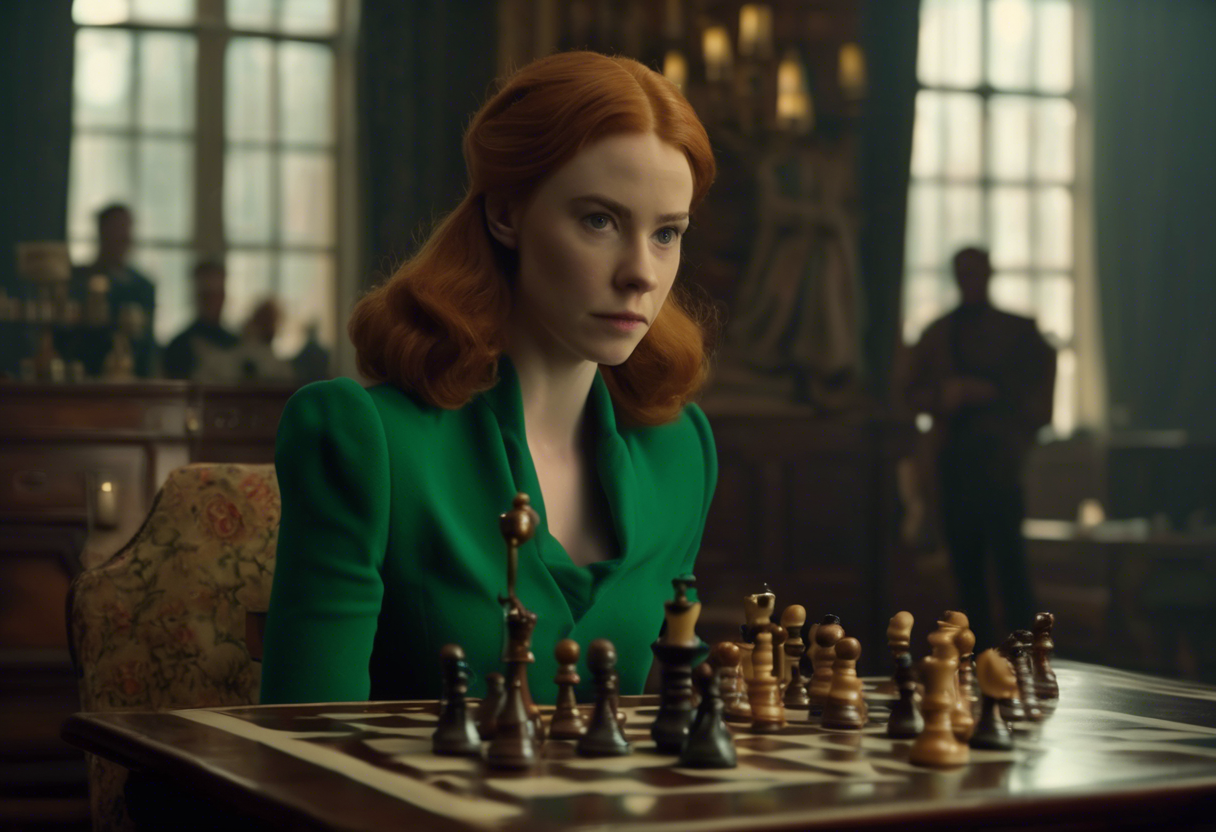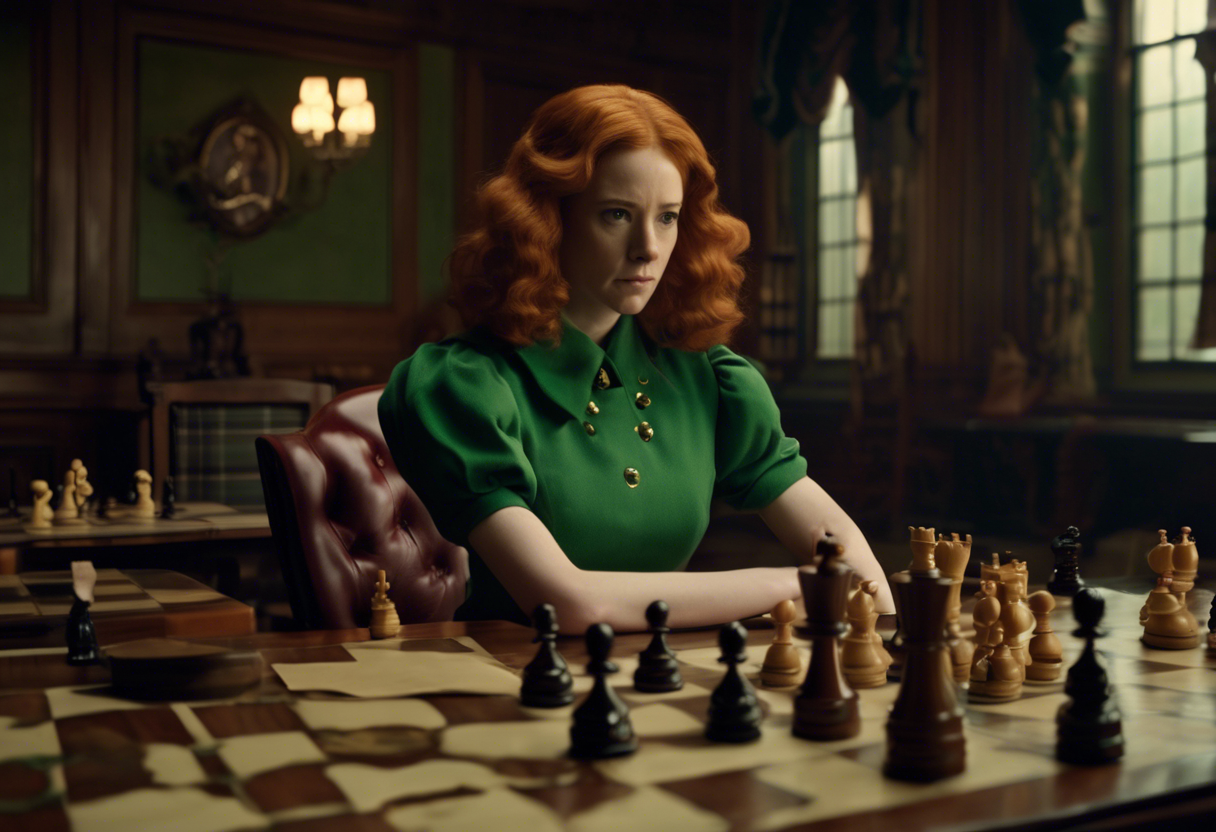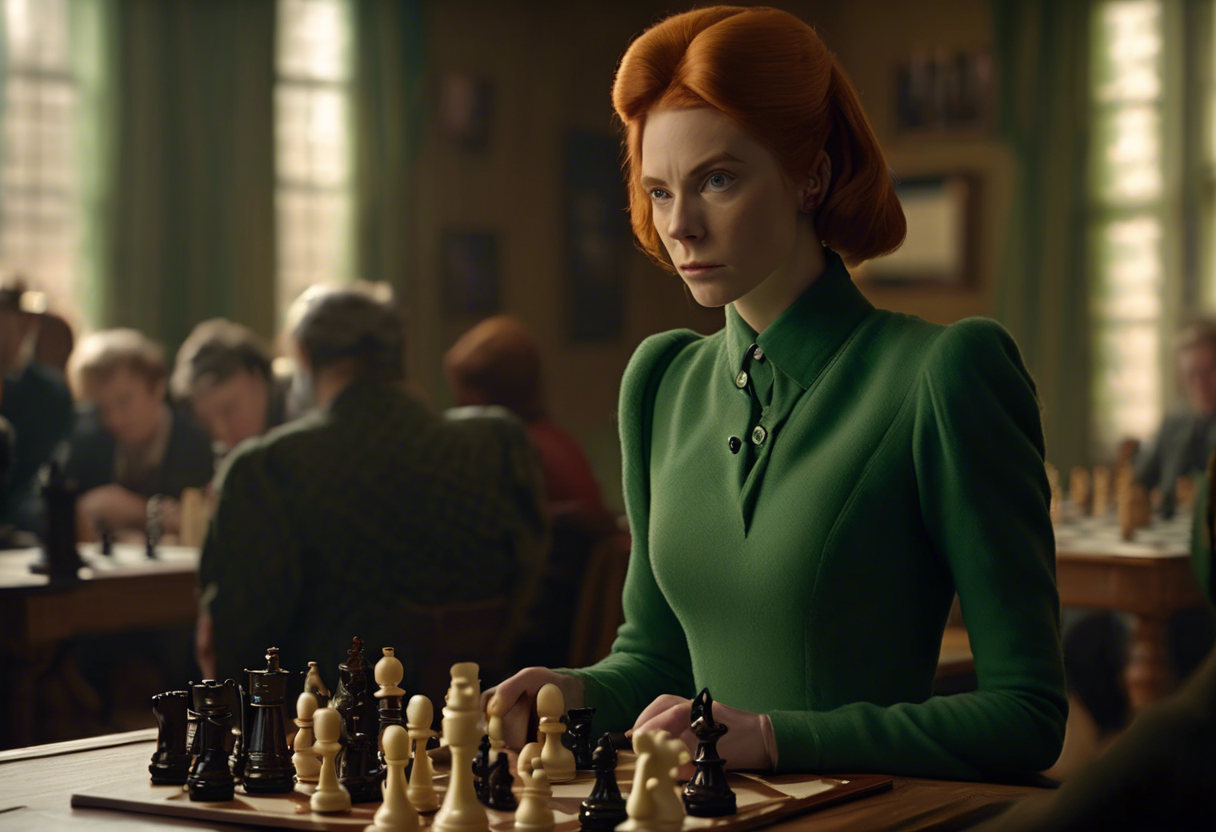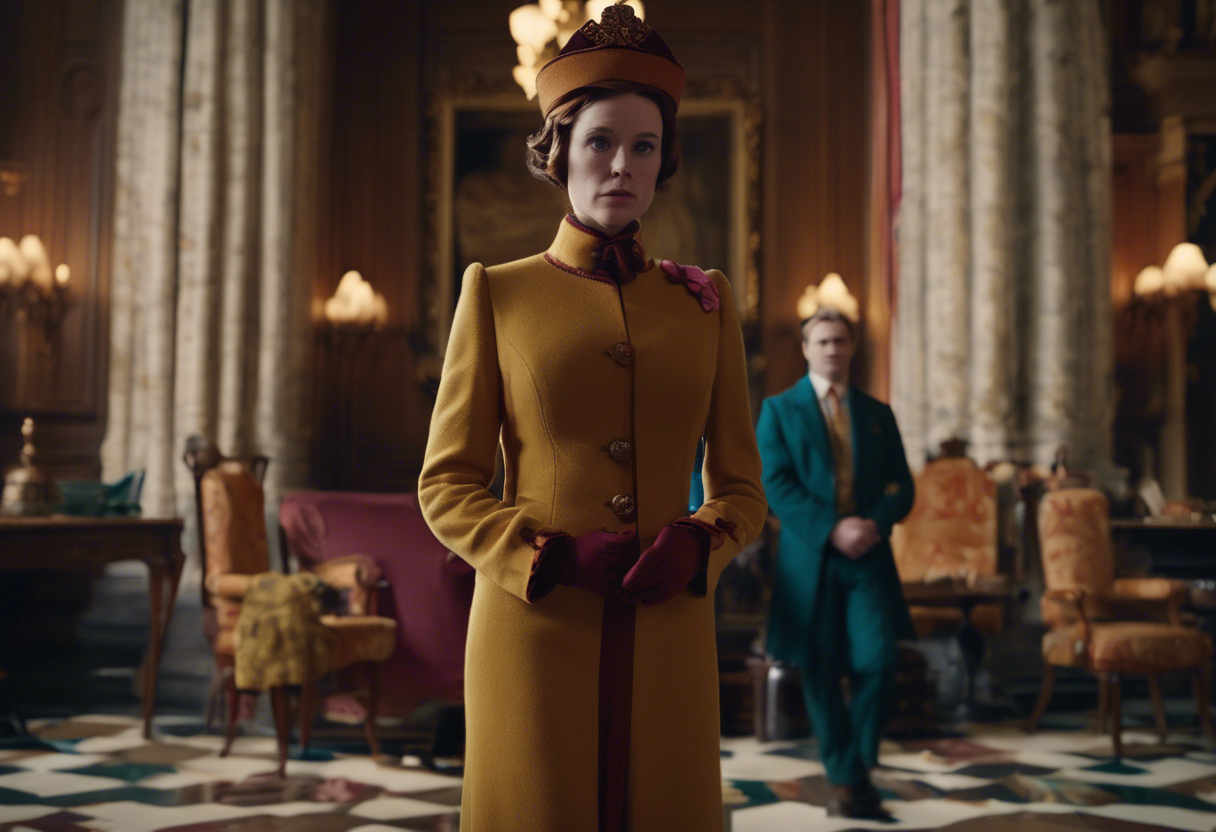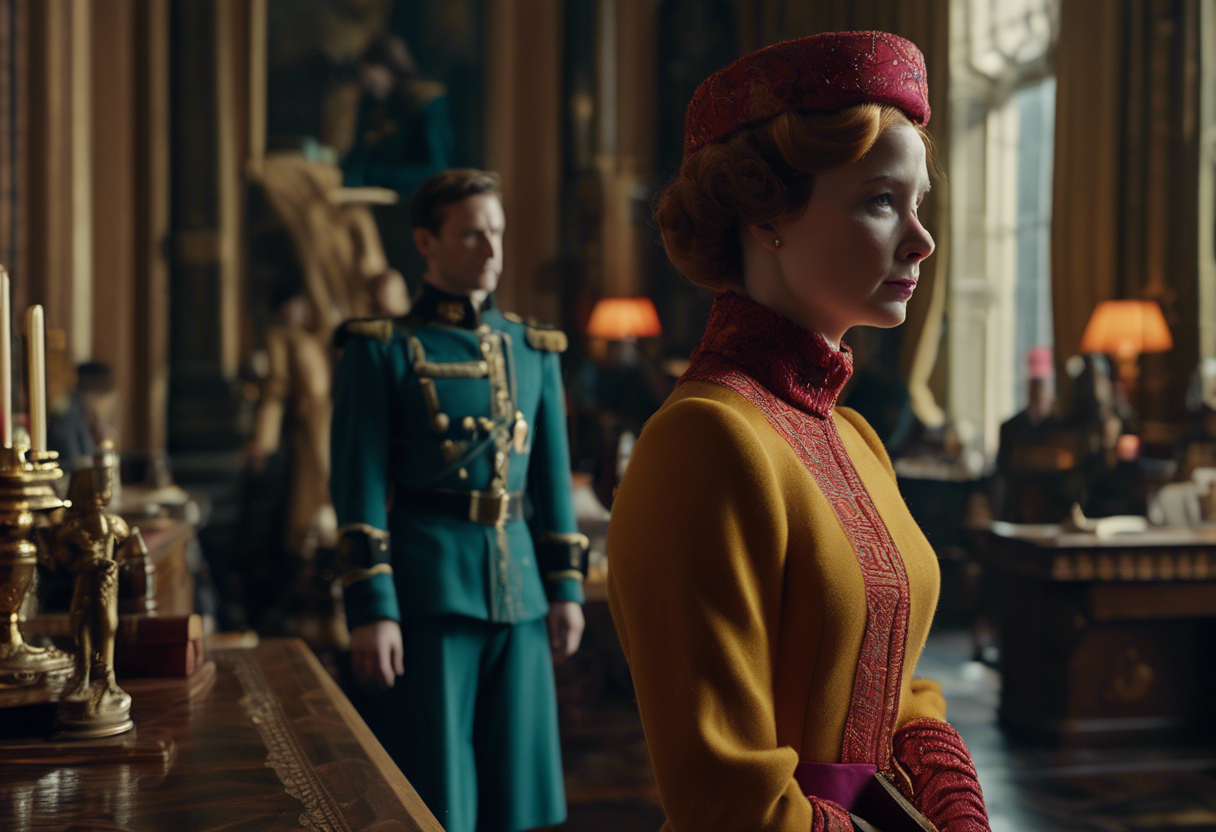The Queen’s Gambit Season 1: Episode 6 – Adjournment
Introduction
The Queen’s Gambit, a Netflix limited series released in 2020, quickly captivated global audiences with its poignant exploration of competitive chess through the life of Elizabeth "Beth" Harmon, a prodigious chess player navigating personal and professional challenges. Created by Scott Frank, who also served as writer and director for several episodes including Episode 6 titled "Adjournment," the series brought to life Walter Tevis’s 1983 novel with a meticulous attention to detail in production design, character development, and narrative depth. Executive producers like William Horberg contributed to shaping the series’ thoughtful and atmospheric tone. The show distinguished itself within the drama genre by weaving the traditionally cerebral world of chess with a compelling coming-of-age story about addiction, grief, and perseverance. The visual storytelling combined vibrant period settings of the 1950s and 1960s with an intimate character study, emphasizing Beth’s rise in the male-dominated chess world. "Adjournment," situated toward the climax of the series, is notable for its unflinching portrayal of Beth’s vulnerabilities as well as the pressures of competition, which sets it apart as a poignant and intense episode within the show’s narrative arc.[1][4]
Plot Summary
"Adjournment" opens with a compelling flashback to Beth’s complicated early life, highlighting a conversation with her biological mother. This intimate moment reveals the theme of male influences shaping Beth’s journey, as her mother advises her that the men who enter her life will each teach her important, albeit different, lessons. This framing foreshadows the episode’s intertwining of Beth’s personal relationships and her internal battles. The sequence then shifts to a lively social scene, where Beth is introduced to Benny Watts and his friends Hilton Wexler and Arthur Levertov, alongside Cleo, a model. The convivial atmosphere serves both as an insight into Beth’s broader social circle and as a prelude to a defining display of her prodigious talents. During a lighthearted challenge at speed chess against Benny and his friends, Beth demonstrates her extraordinary prowess, confidently besting each opponent in rapid succession without losing a single game. The scene captures the self-assuredness and strategic sharpness that define her character, reinforcing her emerging stature in the chess community. The chemistry between Beth and Benny is subtly sketched in these moments, foreshadowing their complex rivalry and mutual respect that unfolds throughout the series.[1]
A pivotal moment surfaces as the narrative returns to the tense and high-stakes milieu of the World Chess Championship match between Beth and Vasily Borgov in Paris—a match already familiar from the first episode but now shown through the lens of Beth’s deteriorating condition. The episode vividly portrays Beth waking late and stumbling from a bathtub, clearly hungover and physically unprepared for the critical game ahead. Her disheveled appearance and the broken watch on her wrist serve as visual symbolism of her fraying control over both life and chess. Despite attempts to regain her composure, Beth sliding deeper into self-destructive behavior undermines her focus, causing her to lose positional advantage as the match progresses. The chessboard, her domain of logic and order, becomes a battlefield of internal conflict as Beth’s clarity falters. She ultimately resigns in quiet defeat without the customary sportsmanship toward Borgov, reflecting her emotional turmoil and sense of failure. This moment encapsulates the crushing weight of expectations, the temptation of escapism through substances, and the fragile line between genius and self-destruction.[1][4]
Following the match, Beth’s unraveling intensifies. Her phone rings—a device almost symbolic of her tenuous connection to the outside world—and she answers to hear from the local tournament director inviting her to an upcoming event. Despite her disarray, Beth agrees to come early, signaling a desire to reclaim control even as her vulnerability is starkly depicted. Her interactions throughout this sequence expose the loneliness beneath her accolades and the internal struggles that threaten to dismantle her achievements. Amidst these tribulations, she is confronted with the uncomfortable presence of figures from her past, including Harry Beltik, a man whose relationship with Beth has been complex, marked by imbalance and regret. Their relationship, once tinged with paternal concern and romantic tension, emerges again as a reminder of Beth’s difficult path and the emotional scars she carries. The episode uses their interaction to illuminate Beth’s growth and the necessity of confronting her personal demons. This scene also underscores the show’s broader themes of mentorship, power dynamics, and the search for genuine connection in a life often dominated by competition and isolation.[3]
The episode’s narrative continues to explore Beth’s relationship with Benny Watts, whose seasoned experience in chess contrasts with her natural talent. Their competition and friendship emphasize Beth’s transformation from a raw prodigy reliant on intuition to a disciplined player striving for mastery through study and practice. The tension between Beth and Benny is steeped in mutual respect but also highlights the limits of innate ability without experience and strategic depth. This dynamic plays out in a series of intense chess matches that frame their relationship as both challenging and motivational. They each push the other to refine their skills, symbolizing the larger theme of growth through rivalry. The episode captures this evolution through sharp dialogue and expertly constructed chess sequences that engage viewers beyond the typical drama narrative, focusing on the cerebral artistry of the game itself.[2][4]
In a touching and insightful moment, a glimpse is provided into Mrs. Wheatley’s ineffectual role as a support figure in Beth’s life. Mrs. Wheatley’s absence and inability to provide the stability Beth seeks become manifest, reinforcing Beth’s independence and self-reliance. This relationship, or lack thereof, is critical as it reveals the backdrop of emotional neglect that Beth must negotiate alongside her chess career. The show presents this without sentimentality, opting instead to portray the stark realities facing someone trying to rise above a fractured support system. This subplot enriches the episode by situating Beth’s external struggles within a more intimate psychological framework, illustrating how the personal and professional domains intertwine in shaping her trajectory.[2]
Throughout "Adjournment," the chess tournament scenes are meticulously rendered, capturing the tension of competitive play alongside Beth’s internal battle with addiction and loss. The episode carefully balances the cerebral rigor of the game with the human vulnerability of its protagonist. Beth’s physical discomfort and emotional stress come alive in sequences where she searches desperately for moves during a complex game, only to realize she is outmatched due to lack of experience. This humbling realization marks a turning point, as she begins to understand that natural talent must be complemented by discipline and deep study to triumph at the highest levels. The chessboard thus functions as a metaphor for Beth’s life — a strategic puzzle demanding both calculation and resilience. When Beth finally concedes defeat, the episode does not depict despair alone, but also a profound recognition of her limits and the path ahead. The subtle gestures, such as her shaking Benny’s hand, encapsulate growth, sportsmanship, and acceptance.[2][4]
"Adjournment" also delves into the destructive cycles that Beth experiences as a result of grief and pressure. Scenes depicting her increasing alcoholism and emotional instability provide a raw and unvarnished view of addiction. Yet, rather than presenting Beth simply as a victim, the narrative explores her strength and agency amid these challenges. For instance, her decision to confront her adoptive father Allston Wheatley about his attempts to undermine her financially exhibits a newfound assertiveness. This act of taking control over her own affairs signifies a critical development in Beth’s character, affirming her independence and resilience in the face of adversity. The episode carefully layers these personal victories amidst the larger canvas of professional setbacks, portraying Beth as a multidimensional figure negotiating pain and ambition simultaneously.[3]
The episode closes on a note of ambivalence and quiet suspense, with Beth’s downward spiral juxtaposed against moments hinting at recovery. A surprise visit from a familiar character rekindles the possibility of support and renewal. The concluding scenes reflect the broader narrative arc of The Queen’s Gambit — that genius and vulnerability coexist, and that ultimate triumph requires navigating both. The careful pacing and intricate character studies throughout "Adjournment" mark it as a pivotal episode in the series, balancing mastery of a niche sport with universal human themes of loss, identity, and perseverance.[1][4][5]
Themes and Symbolism
"Adjournment" interrogates several interwoven themes central to The Queen’s Gambit narrative. One dominant theme is the duality of genius and vulnerability. Beth’s exceptional chess talent is consistently shadowed by her struggles with addiction, grief, and isolation, illustrating that extraordinary ability often comes paired with deep personal challenges. The episode situates chess as a metaphor for life — a complex game requiring not just skill but emotional resilience. The theme of control versus chaos is visually and narratively emphasized. Beth’s broken watch, her physical disarray, and her eventual resignation all symbolize moments when order collapses. Yet the invitation to return to tournaments also gestures toward regaining discipline. Another key theme is the search for identity amid influence and loss. The flashbacks to Beth’s biological mother’s advice and the complicated relationships with men like Harry Beltik explore how mentorship, love, and exploitation shape her growth. Additionally, independence and self-reliance emerge starkly as Beth confronts inadequate parental figures and rivals alike. Symbolically, chess gameplay in the episode represents strategic conflicts both on the board and within characters’ psyches, emphasizing mastery as a blend of intuition, knowledge, and emotional balance.[1][2][3]
Cultural Impact
Upon its release, "Adjournment" resonated with audiences by providing a deep, humanized portrayal of addiction and pressure in competitive environments, subjects often overlooked in entertainment media focused on sports or intellectual pursuits. The episode contributed to The Queen’s Gambit becoming a cultural touchstone that extended beyond the chess community, spurring increased interest in chess globally. The detailed depiction of chess matches and the psychological insight into Beth’s world inspired references to the episode in gaming communities, talk shows, and even fashion, with viewers drawn to the show’s distinctive period style and nuanced storytelling. Beth Harmon became an icon of female empowerment and complexity in media, and "Adjournment" was critical in illustrating the depths of her struggle, influencing myriad discussions about mental health and addiction in competitive fields.[1][3]
Critical Reception
Critics praised "Adjournment" for its unvarnished, yet empathetic portrayal of Beth’s vulnerabilities, noting the episode’s skillful balance between tension-filled chess sequences and intimate character drama. Reviewers highlighted Anya Taylor-Joy’s compelling performance, capturing the emotional fragility and fierce determination of Beth Harmon during her darkest moments. The episode’s pacing and cinematographic choices, including the use of flashbacks and subdued lighting, were recognized for enhancing the narrative’s emotional impact. While some criticism was directed at the episode’s slower tempo and focus on personal struggles over chess action, most acknowledged that this approach deepened the series’ thematic richness and provided essential context for Beth’s character development in the finale. Over time, "Adjournment" has been regarded as a standout episode that elevates the series beyond a simple sports drama into a profound psychological journey.[1][2][4]
Legacy
"Adjournment" holds an enduring legacy as a pivotal chapter in The Queen’s Gambit that cements the show’s reputation for blending intense intellectual competition with human drama. Its depiction of addiction and resilience in the context of a predominantly male arena has influenced subsequent portrayals of complex female protagonists in television and film. The episode helped reshape public perceptions of chess from a niche pastime to a dramatic and culturally relevant pursuit, inspiring renewed audience engagement with the game worldwide. For creators, "Adjournment" serves as a model for integrating sports or intellectual competition with layered character studies, underscoring the importance of emotional truth alongside technical excellence. Its continued relevance in popular culture affirms its impact as both a narrative achievement and a social commentary on ambition, loss, and recovery.[1][3][4]
References
- https://www.screenspy.com/queens-gambit-season-1-episode-6/
- https://www.litcharts.com/lit/the-queen-s-gambit/chapter-6
- https://screenrant.com/queens-gambit-episode-6-phone-call-harry-beltik-why/
- https://www.chessbase.in/news/The-Queens-Gambit-Episode-6-review
- https://blogs.cornell.edu/rosescholarsspring2021/category/explore-series-the-queens-gambit-episode-6-and-7-4-18-2021/

